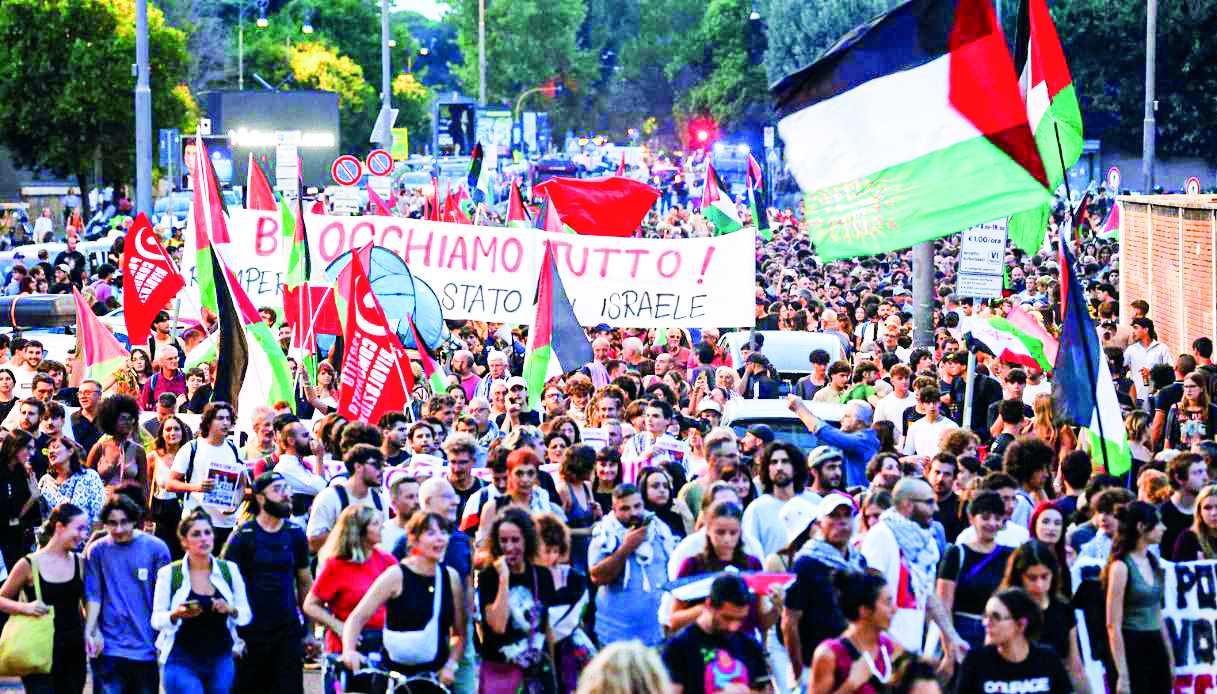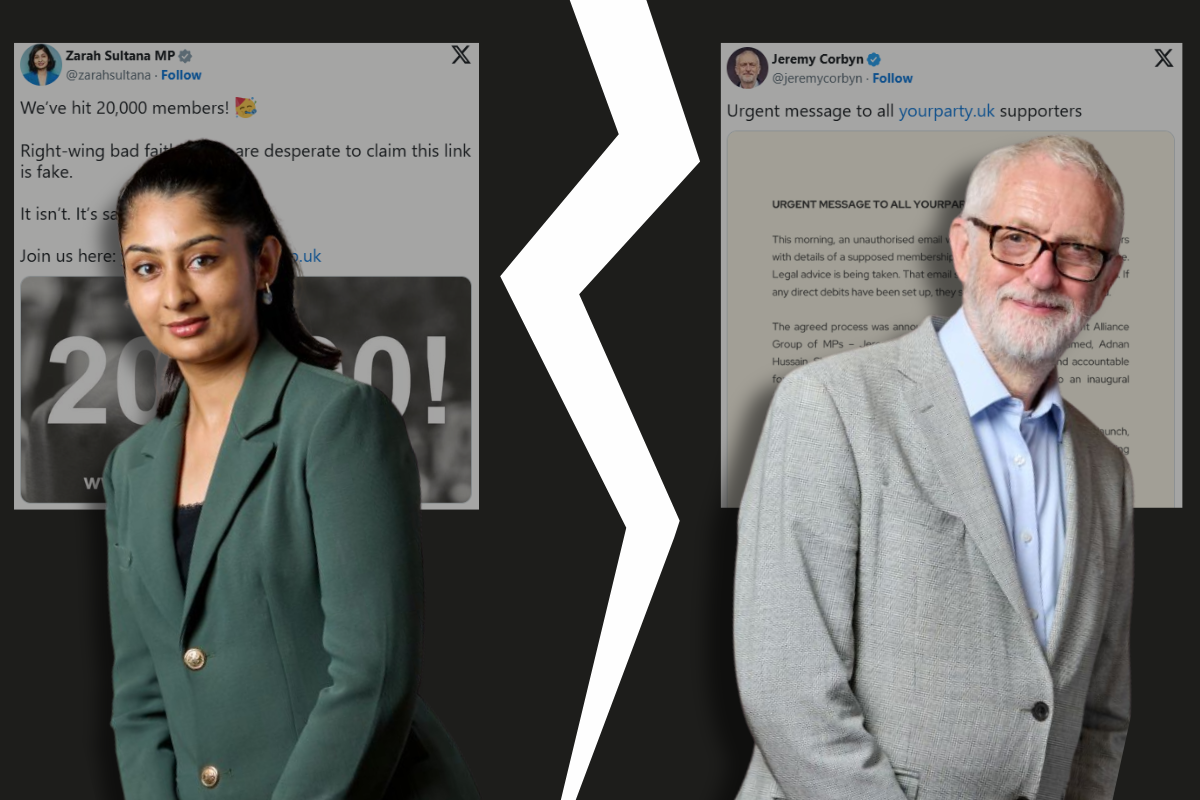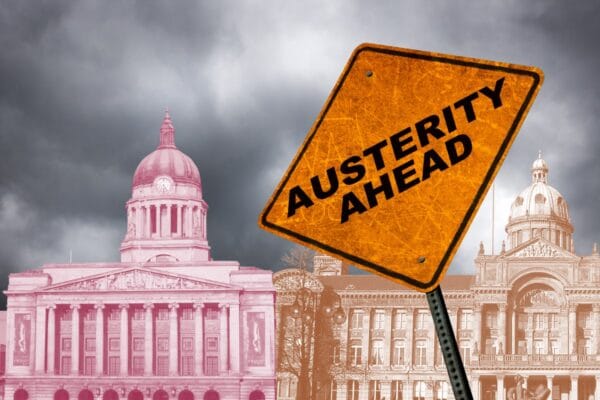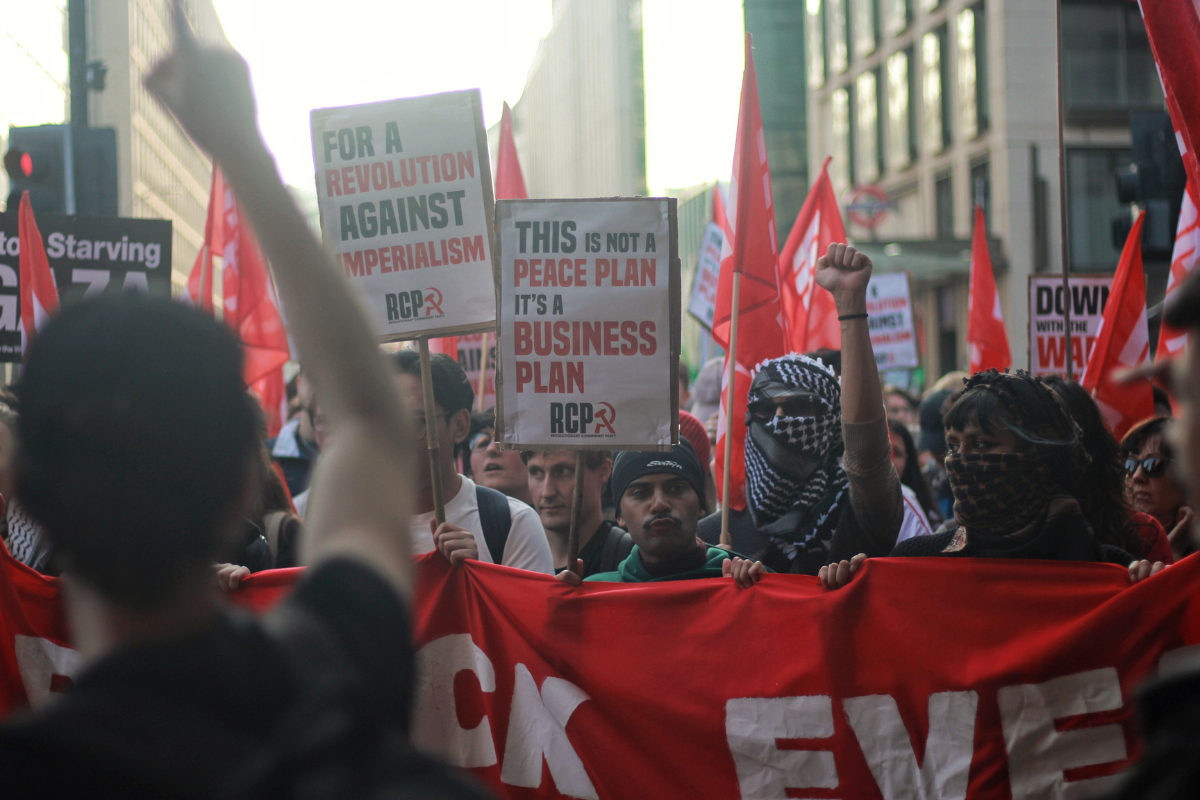The half-a-million strong demo for Palestine in London on 11 October, marking two years since the start of the genocide in Gaza, showed that the flames of anger in society are burning stronger than ever.
This incendiary mood is by no means confined to Britain. The whole world is on fire. From Madagascar and Morocco, through to Indonesia and Italy: a blaze of revolution and revolt is spreading across the globe.
The immediate spark for these mass movements differs from case to case.

In Nepal last month, a ‘Gen Z’ rebellion quite literally burnt the country’s political system down, with protestors setting parliament, the Supreme Court, and the homes of senior politicians alight, due to resentment over corruption amongst the elites.
In Madagascar, protests were initially sparked by the issue of electricity supply shortages. But given the combustible material amassed, these quickly escalated into a huge movement of the youth, which has now overthrown the old regime.
In Italy, meanwhile, the Israeli state’s attacks on the Gaza solidarity flotilla at the start of this month provoked a massive – unprecedented – political general strike, with over two million workers and youth coming out onto the streets across the country.
Regardless of the immediate cause behind these events, however, it is clear that they are all a symptom of the same underlying, general process: the insoluble crisis of the capitalist system – the system responsible for economic instability and insecurity; conflict and corruption; austerity and attacks on living standards.
Pressures building
The fragile ceasefire deal between Israel and Hamas, pushed on Netanyahu by Trump, was partially a product of the inspiring events in Italy. The ruling classes everywhere are terrified at the prospect of facing a similarly militant movement to that which has confronted Meloni’s reactionary government.
In the short term, if it holds, this ‘peace’ agreement could cut across the developing Palestine movement, with the establishment press doing their best to sow illusions in Trump’s plan for the Middle East.
In the longer term, however, the fiery fury of the masses will not be quelled. Everyone can see that this so-called ‘peace’ plan is unsustainable, doing nothing to resolve the suffering of the Palestinian people.
View this post on Instagram
Moreover, Gaza is not the only question that is fuelling indignation amongst workers and youth. Rather, for the past two years, the issue of Palestine has acted as a lightning rod for all the accumulated rage within society; a catalyst for exposing the rottenness of the entire system, and thereby radicalising consciousness.
Whatever happens in the Middle East, this explosive anger will not go away. In fact, as capitalism plunges deeper into crisis, the pressures will only build. And one way or another, these will eventually find an outlet.
Political vacuum
Truth be told, however, it must be said that the leaders of the ‘left’ and the labour movement are unfortunately doing little-to-nothing to offer any genuine expression to this inflammable mood.
Instead, there is an enormous political vacuum in Britain. This provides cynical opportunists and charlatans like Nigel Farage and Tommy Robinson with an open field for their reactionary demagogy.
The working class is facing an onslaught from the capitalist establishment and its representatives. Starmer’s government is slashing welfare to pay for warfare. Rents, bills, and grocery prices continue to rise. Industrial closures are leading to mass sackings. And Chancellor Rachel Reeves is sharpening her knives ahead of the upcoming Autumn Budget.
Yet what is the response of the trade union and left leaders to all of this? A deafening silence.
First they failed to mobilise for the national demonstration against austerity on 7 June, resulting in an embarrassingly-low turnout, despite intense anger brewing over Starmer’s cuts to benefits for pensioners and disabled people.
Then they repeated this feat on 13 September, only with more alarming consequences – allowing Robinson and his goons to confidently run riot through the streets of central London.
At the recent mass demo for Palestine, meanwhile, the main organisers and speakers said nothing of the example set by the Italian workers.
Yet the latter has achieved more with 24-hours of class-based action – ‘blocking everything’, including arms shipments to Israel – than has been accomplished by the former through monthly A-to-B marches, endless calls for individual consumer boycotts, and utopian appeals to the so-called ‘international community’.
Instead, those leading the chants raised the same cries that they have been repeating since 7 October 2023: “From the river to the sea, Palestine will be free.”
But these words ring more hollow now than ever. Having helped turn Gaza into a wasteland, western imperialism is now turning the Strip into its colony. Zionist settlers, meanwhile, are expanding their land seizures in the West Bank. For the Palestinian people, therefore, such vacuous slogans are a sick joke.
‘Your Party’

Then there is the shambles surrounding the launch of ‘Your Party’ – the new left outfit being spearheaded by Jeremy Corbyn and Zarah Sultana.
This summer, after dragging their feet for months, Corbyn and Sultana finally announced plans to establish a new left party. The enthusiasm towards this initiative was clear from the outset, with over 700,000 signing up in support within days.
Since then, however, the initial excitement has waned and frustration has set in.
Instead of discussing the party’s politics and programme, its founders have bickered over secondary organisational questions, giving the distinct impression that they lack direction and seriousness.
Consequently, young activists looking for a political home have flocked to the Greens, attracted by new leader (and self-proclaimed ‘eco-populist) Zack Polanski’s bold rhetoric against the billionaires and big landlords.
A growing layer, meanwhile, is drawing even more radical conclusions – getting organised as revolutionary communists with us, the RCP.
Left leaders’ limits

The failures of the ‘left’ and trade union leaders are not accidental, but flow from their woolly, soft, reformist politics, seeped in liberalism and pacifism; from their narrow, pessimistic outlook.
At root, they all think that capitalism can be made nicer and kinder. In turn, they sincerely believe that the capitalists and their agents can be persuaded to avert supposedly ‘ideological choices’ like implementing cuts or fuelling genocide.
But this is completely false. Capitalism cannot be patched up or reformed. Cuts and conflict are not ‘political’ or ‘ideological’ choices, but are the inevitable consequence of this crisis-ridden, dog-eat-dog system.
In the final analysis, these ‘lefts’ have no faith in the power of the working class to transform society. Hence their refusal to mobilise workers and strike like an Italian, whether it be in the struggle against austerity or war.
Instead of calling upon the one force capable of changing the situation for the better, the organised working class, they limit themselves to moralistic appeals – aimed precisely at those who are doing their utmost to maintain the miserable status quo.
And rather than uniting all these struggles – against austerity, against racism, for Palestine, and so on – around a revolutionary programme that tackles the root of the problem, the decrepit capitalist system, they purposefully maintain a separation between different battlefronts.
The latest national demo for Palestine, for example, showed the enormous potential strength that exists on the left, with at least 500,000 marching once again – in spite of the limits of the organisers’ politics and tactics.
Yet why did Corbyn, the unions, and groups like Stand Up to Racism, Stop the War, and the Palestine Solidarity Campaign not make every effort to mobilise their supporters and members in protest against Tommy Robinson and his flag-waving hoard?
Why have they not called upon workers to take mass direct action as a class to stop the genocide, like the Italian workers? Or linked the struggle against imperialism abroad to the struggle against austerity at home – and, in turn, to the fight against the war criminals in Westminster?
Militant class struggle along these lines would show clearly where the true balance of forces in society lies: not on the side of reaction, but with radicalised workers and youth.
View this post on Instagram
Marxist perspective
The RCP mobilised for all these protests, organising dynamic communist blocs of hundreds. We did so not simply to pad out the numbers, however, but to inject much-needed revolutionary ideas into the movement.
Where the ‘lefts’ said ‘tax the rich’, we said ‘expropriate the billionaires!’. While they waded into the culture war around migration, saying little more than ‘refugees welcome’, we called for class unity against the real enemy, saying ‘fight the billionaires, not the boats!’.
And while they impotently called for a free Palestine, ‘from the river to the sea’, the revolutionary communists called for workers everywhere to ‘block everything for Palestine’ – linking the struggle against the genocide in Gaza to the fight against the ‘real terrorists’: our own imperialist ruling class.
View this post on Instagram
In mirror image to the reformists, the boldness and sharpness of these slogans is also not accidental, but flows from our Marxist politics and perspectives.
We base ourselves on Marxist theory; on a class analysis of society. And on this basis, we draw revolutionary conclusions and formulate corresponding demands, with the aim of giving workers and youth confidence in their own strength – the strength to overthrow the system and transform society along socialist lines.
Revolutionary leadership
This is what we, as communists, can best contribute to the movement: clear ideas. Our primary role lies in this – not to repeat palatable platitudes, but to raise consciousness.
As Marx and Engels emphasised in the Communist Manifesto, above all, it is our ideas and firm grasp of perspectives that distinguishes us as communists: “clearly understanding the line of march, the conditions, and the ultimate general results of the workers’ movement.”
The urgent task before us is to build the missing subjective factor: the revolutionary leadership that can match the gravity of the objective situation.
There are no shortcuts in this venture. Instead, we must chart a steady course, using the compass and map that the method of Marxism provides to guide us. Only on this basis can we steer clear of dead-ends, and avoid being pushed off-piste by turbulent events.
There is no time to waste. We must get to work – with a sense of immediacy and determination – in building the forces of revolutionary communism.
Only then can we make a proper impact upon events, and put an end to the horrors of capitalism and imperialism once and for all.






